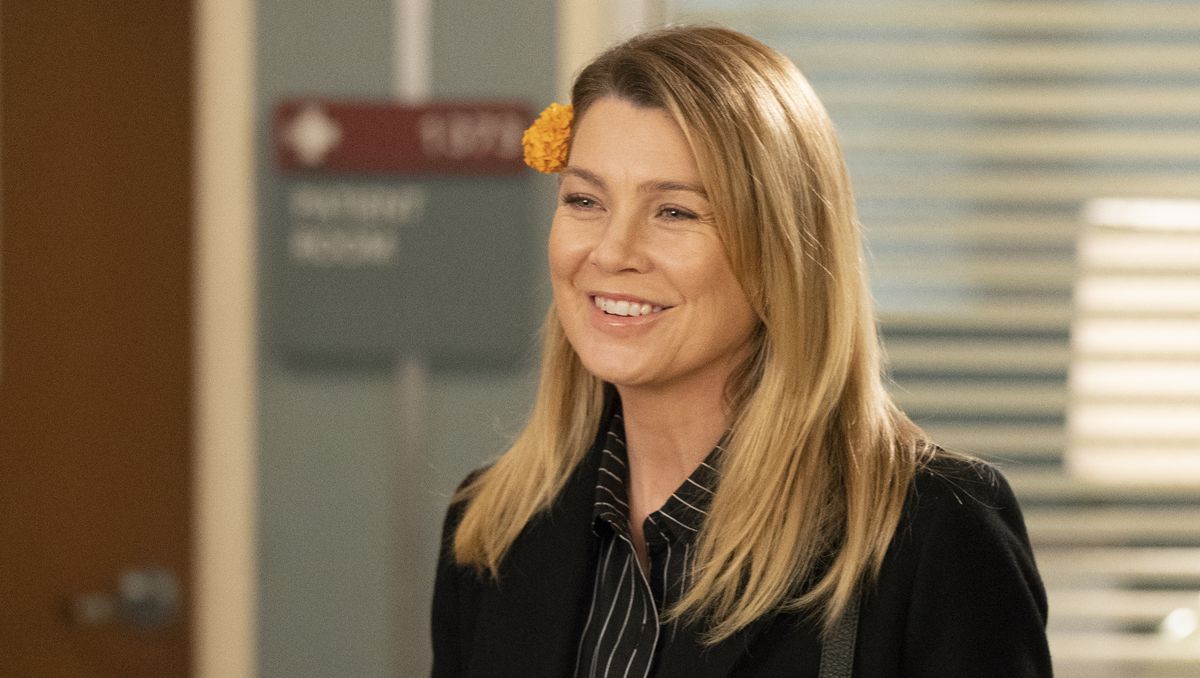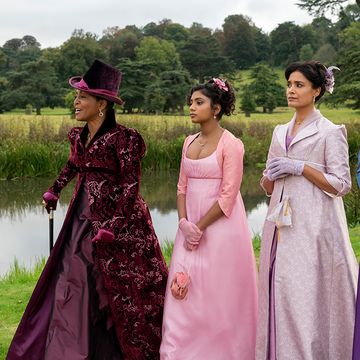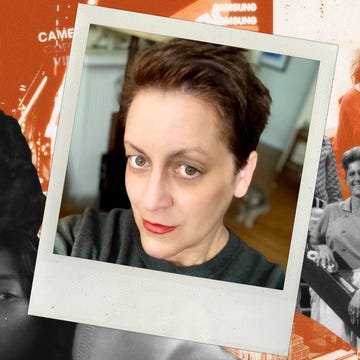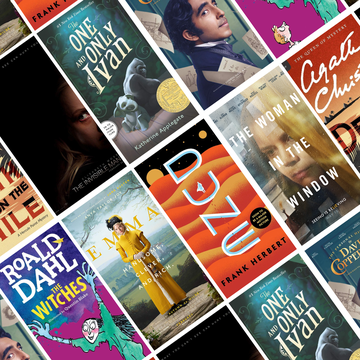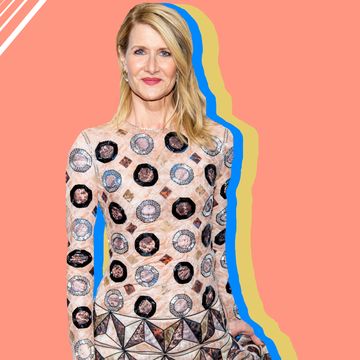On February 28, the 15th episode of 'Grey's Anatomy's' 15th season will officially make it the longest running primetime medical drama in television history. As we build up to this monumental TV moment, we've asked five writers, all of them 'Grey's' groupies since the first season, in 2005, to tell Shondaland.com why the seminal drama series has meant so much to them over 330 (and counting!) episodes.
When the first episode of Grey's Anatomy premiered in 2005, I was 22, a few months out of college, and attempting to navigate New York City as an aspiring writer. I knew who I was, but I didn't yet know who I wanted to be. Thus, watching the exhilarating uncertainty of Grey's new interns — Meredith Grey, Cristina Yang, Alex Karev, Izzie Stevens, and George O'Malley — flooding the halls of Seattle Grace (now Grey Sloan Memorial Hospital) on that first season really resonated. They were cocky, they took unnecessary risks, they brooded. They navigated their burgeoning careers as doctors at the same time that they stumbled through inter-hospital relationships, some serious (Meredith and McDreamy), some not (Alex and that unfortunate nurse). Everything was immensely dramatic. They thought they were the center of a universe far vaster than they could comprehend, and Meredith, the emotional core of the show, represented, to me, how we feel when we're shoved out into the world and expected to survive.
In the initial years, Grey's Anatomy was very much about those feelings of being a new adult, of grappling with the past as you attempt to stand up as your own person. It was about mistakes and the eventual triumphs those mistakes can bring about. Meredith was overwhelmed by the looming shadows of her childhood and her family, and she struggled to detach herself from all that early trauma of dealing with an absent mother and alcoholic father. She watched friends and family members die. She put herself in countless perilous situations, purposefully. She almost let herself drown, a tangible parallel to the waves of darkness inside her head.
But how long could we watch a character refuse to live — and refuse to thrive? Sure, we viewers had come to understand, and even identify with Meredith's penchant for being, as Cristina so rightfully put it, "dark and twisty," yet there was a sense that the existential angst of being a twenty-something couldn't last forever. Like with all things, ours and our protagonist's discontent with life had to eventually shift. At the end of one particularly poignant episode, Meredith said, in a voiceover, "Why do I keep hitting myself with a hammer? Because it feels so good when I stop."
Likewise, it was equally satisfying when Grey's Anatomy stopped hitting Meredith with the metaphorical hammer. When I was getting my MFA in writing at Sarah Lawrence College in New York, some years after the show had premiered, a professor told me that every good character, be they from literature, stage, or screen, has to change in some way. Over the course of a story, we must witness an evolution, a stepping from one place to another, so that we can acknowledge that we have the capacity for change in ourselves, that events and experiences bring about internal shifts both profound and nuanced, that if a character can be better or happier or stronger, so can we.
Meredith, like anyone scrambling through this world, began to change. She made new choices with new agency. She stopped being someone to whom bad things happen, and she became someone who flourished in spite of her setbacks. She made new friends after her "person," Cristina, moved away and moved on. She stumbled in her career, but didn't stop trying to learn. She was in a horrific plane crash that killed her newfound sister. She watched the love of her life, Derek, die but she didn't stop living. Instead of succumbing to the grief and depression as she might have in her twenties, Meredith used it to push herself to become a better surgeon and a better mother. She found a literal sisterhood with Maggie and Amelia and built a new family from scratch. She showed us that you can decide not to be a victim of your own life.
There are very few TV shows that make it to 15 seasons, but what has always kept me in Grey’s grasp is the way in which the characters never stop evolving. I am not the person I was when I started watching the show, so, in many ways, we’ve all grown up together. We’ve become adults together, which means building more mature relationships and moving through the world with more ease. But I realize my life is, in many ways, not like Meredith Grey’s. Meredith is now head of general surgery at Grey Sloan Memorial Hospital with the lives of thousands of patients and employees in her hands, the winner of a coveted Harper Avery Award, and a mother to three children. I’m a writer left mostly to myself, with two books under my belt and a third in the works, and I spend more time interviewing celebrities for magazines than I do worrying about saving lives. But we’ve both looked suffering in the eye and we’ve both faced loss. We’ve both seen friends die in horrible circumstances. We’ve both seen the real-life impact that alcoholism can have on a life. And there were many times when I could have released myself into my depression and felt that same instinct to let myself drown.
In these fundamental ways, then, we aren't so different, Meredith and I. And as such, Meredith has been there as I —as we — learned to navigate the challenges life brings. Together, we’ve realized that it’s better to accept the good than it is to revel around in your sadness or your anxiety or your pain. Why be defined by your darkness (and twistiness) when you can be defined by your successes? After all, as we grow, we get to make choices, just like Meredith. We get to decide to stop hitting ourselves with the hammer and to embrace the relief that comes.
Get Shondaland directly in your inbox: SUBSCRIBE TODAY
